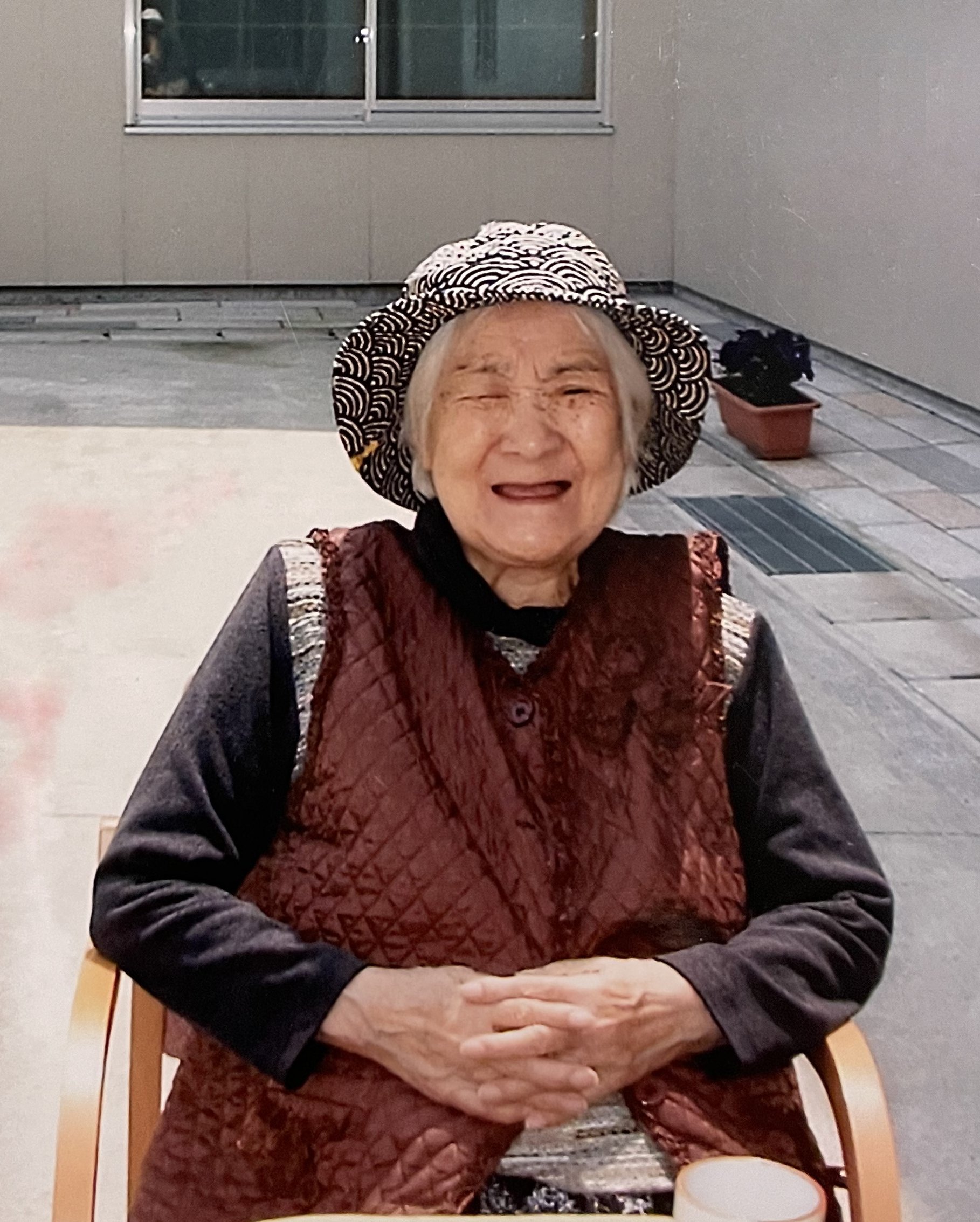The Araki Women
A volunteer named Lily at the Japanese Gardens Moon Viewing Festival in Seattle the other day wasn’t able to see any of the performances. She had been assigned volunteer coordination at the far end of the garden from the stage’s location. This was also where the artists could store their personal belongings while they were playing. When my performance was finished and I went to collect my things, she asked if I could play her a little something just so she could hear what shakuhachi sounded like, which I was all too happy to do. She then peppered me with questions; questions about the history of shakuhachi, making instruments, where I learned, etc. etc. Her questions would often circle back to the same place: When I told her about the history of shakuhachi in my family and how I learned from my father, she asked do women play shakuhachi? When I mentioned that shakuhachi was originally a form of meditation for Buddhist monks, she asked, are women allowed to be monks?
It’s hard for me to admit just how little I know of the women on my Japanese side. I’m deeply embarrassed to acknowledge that I don’t even know my great-great grandmother’s name, despite all that I know of my great-great grandfather. Neither does my father.
Kodo III and my great-great-grandmother
My great grandmother, the wife of Kodo III was called Kon (古舞). She came from a well-known family and was part of the first graduating class of Atomi Gakuen, an all-girl’s school then in Kanda in central Tokyo. But I know nothing of her own interests, hopes, passions. I know that Kodo III was an avid calligrapher and painter, as was the founder of the Atomi School, so it stands to reason there was a shared interest there. But that’s conjecture.
from left-to-right: Ai, my dad, Tsukimi, a cousin of my dad’s (standing)
My grandmother Araki Ai (née Ide) was from Nagano, born in the town of Usuda. Pre-Showa birth records are often spotty, especially outside of Tokyo, so we approximate her birth year at or about 1910. Her father produced a concert for Kodo IV where he introduced him to his daughter, and it was evidently love at first sight.
My grandmother was not particularly kind to my father or his older sister Tsukimi during their childhood and made their lives very difficult, even after they had grown and flown the coop. My aunt, sadly died from cancer when I was quite young. She was a few years older than my dad and so had more lived experience with their father; time my dad would never have, and he cherished the anecdotes she shared with him.
My aunt, Tsukimi with my cousin Meiko
At the end of Ai’s days, well into her 90s, my dad seemed to soften toward her—even renaming his composition Dokyo to her memory—but overwhelmingly, their relationship could at best be described as strained.
the last photo I have of my grandmother
She was all of 4-foot-nothing but had that obāchan power. She lived with us in Tokyo where her days mostly consisted of smoking cigarettes and watching TV dramas. She would indulge in her favorite pastime—eavesdropping—whenever she could. This would infuriate my father. Voyeurism and eavesdropping were things he could not tolerate.
To me, she was a delight. She was the only person in the household who would compliment me on my playing. Occasionally, she would try to elicit a response from my father saying his playing is beautiful, wouldn’t you agree? to which my father might offer an ambiguous monosyllabic grunt. When I would return home after moving away from Japan, she would tell me my, you’ve gotten so tall! (I had not).
There’s an undeniable and unfortunate patriarchy throughout Japan’s history to which shakuhachi culture is not immune. Traditional Fuke shakuhachi players—that is, the monks who are most closely associated with shakuhachi—often were formerly samurai who would put down their swords because they were either disillusioned with war, or because they would otherwise starve. When shakuhachi began to incorporate more contemporary, or “city” music (and indeed, become music rather than a purely meditative exercise) players would maintain the more masculine playing-style associated with the Fuke tradition.
This machismo in shakuhachi playing is exemplified by the fact that, historically, it was an instrument that women did not play.
Shakuhachi in the modern world sees a great number of women playing to the highest standards, but I would say it’s still largely a boy’s club. It has been said by some that shakuhachi does not suit women, which I find patently absurd. It saddens me to say that I have no women students though.
Ethnomusicologist and shakuhachi player Kiku Day could speak more to this, and I hope to continue this conversation with her next week; it’s an important topic, but not exactly what I set out to write about today. I simply don’t have any more information on the subject of the Araki women as much as I wish I did. This is something I hope can be remedied with a little perseverance.
More anon,
Hanz



